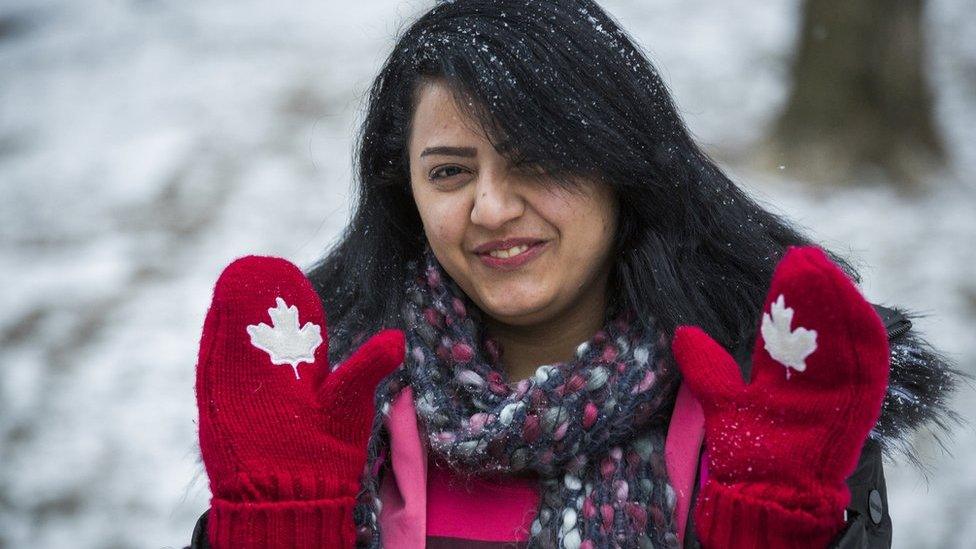Canada town feels burden of refugees crossing US border
- Published
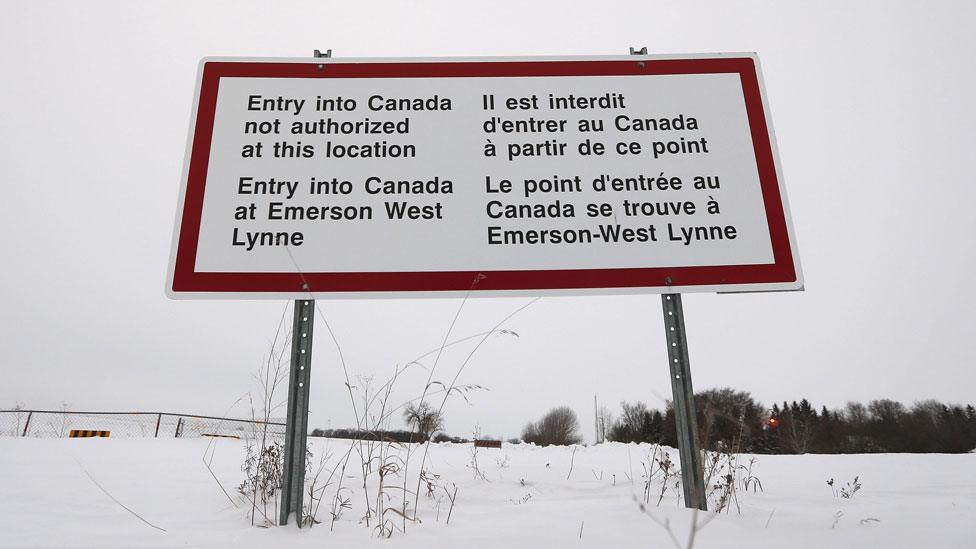
A small town in rural southern Manitoba says it is hopeful help is coming to assist with an influx of refugee claimants.
The municipality of Emerson-Franklin is preparing for more people crossing illegally at the Canada-US border.
They had 22 border jumpers cross last weekend.
The town of some 700 people, near a major interstate highway, has been struggling with growing numbers of asylum seekers over the past two years.
While the new US President, Donald Trump, has made a hardline stance on immigration a key policy, north of the border is very different.
Canadian Prime Minster Justin Trudeau made global headlines for accepting nearly 40,000 refugees, and has said his country will welcome those fleeing persecution and war.
The two leaders will meet in Washington for the first time on Monday.
On Thursday, the town of Emerson held an emergency meeting with the Royal Canadian Mounted Police (RCMP), border services and provincial and federal representatives.
The RCMP says they have increased resources along that section of the 500km (310 miles) Manitoba-US border.
The Manitoba Interfaith Immigration Council, which has been assisting with those who made refugee claims, brought in "care packages" of pillows, blankets and other basic toiletries to the Emerson community complex in preparation for more asylum seekers, coming mostly from Somalia, Ghana, Djibouti, and Ethiopia.
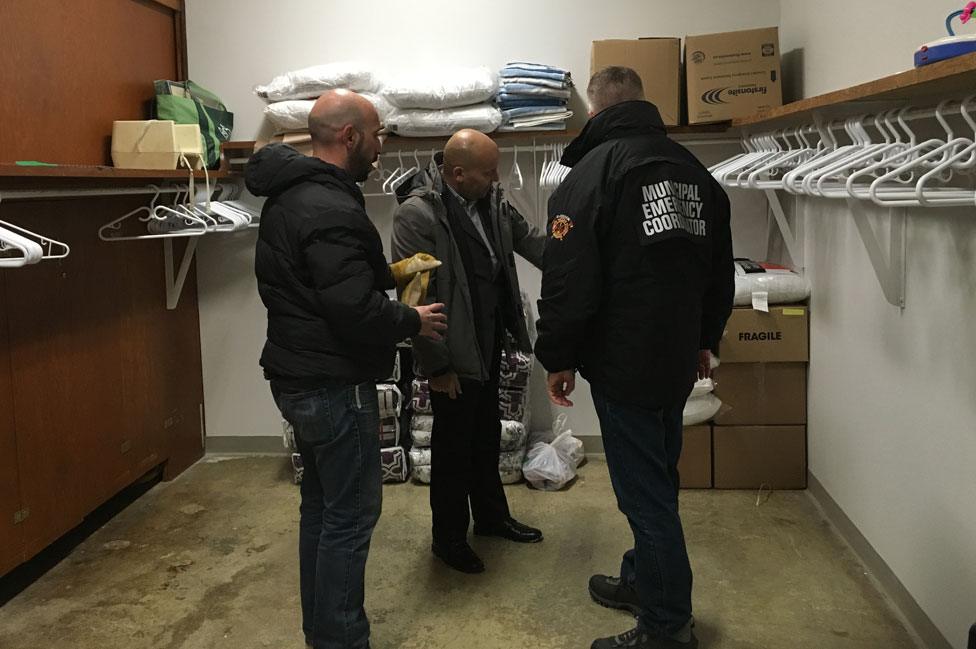
Emerson residents have donated care packages
Early Saturday morning, as it struggled to handle 19 people who had crossed overnight, the Canada Border Services Agency (CBSA) asked the municipality to open its community hall as a temporary shelter, where the town provided tea, food and blankets.
"We did this out of the goodness of our hearts," said Emerson official Greg Janzen, but added that the town cannot handle the influx on its own resources.
He noted there are concerns for both for the safety of local residents and for those making the dangerous trek on foot in freezing temperatures.
But Mr Janzen said "most people in town are more concerned than scared" about the strangers wandering into town.
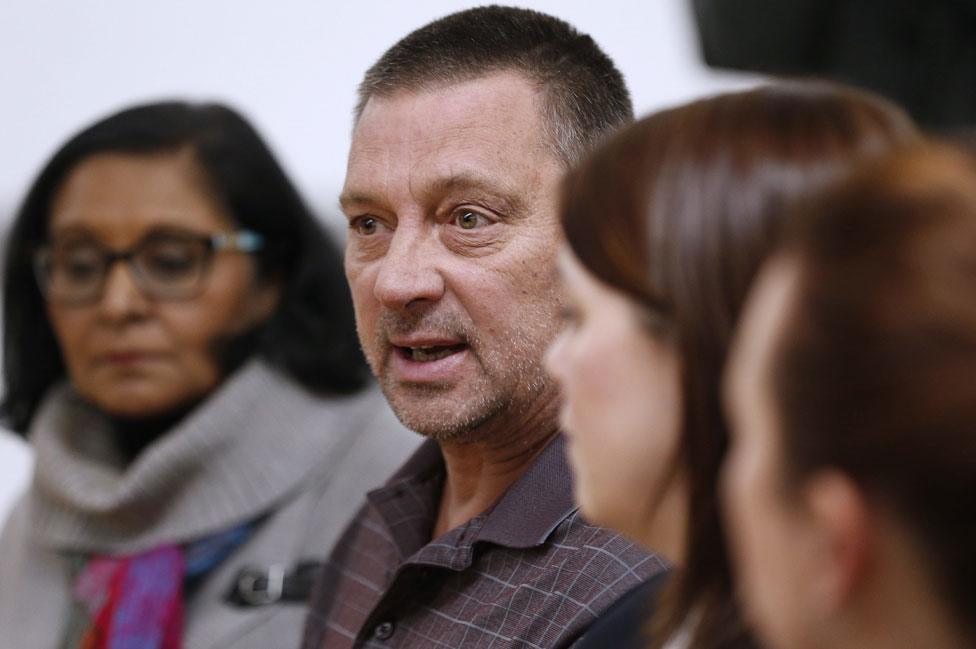
Janzen and other officials held an emergency meeting
The town's fire services, which responds to calls about people who have crossed illegally, says many are found tired, hungry and very, very cold.
On Christmas Eve, two Ghanaian refugee claimants were badly frostbitten after making the crossing and getting lost.
A truck driver eventually picked them up after finding them wandering on the highway after crossing from North Dakota into Manitoba.
Once people are intercepted, they are processed by the CBSA - identified, searched and screened.
The phenomenon of asylum seekers crossing the border in Manitoba is not new, but the spike in high numbers is.
Between April 2013 and March 2014, 68 claimants illegally crossed the international border, according to CBSA numbers.
The next year it was 136. The year after 340.
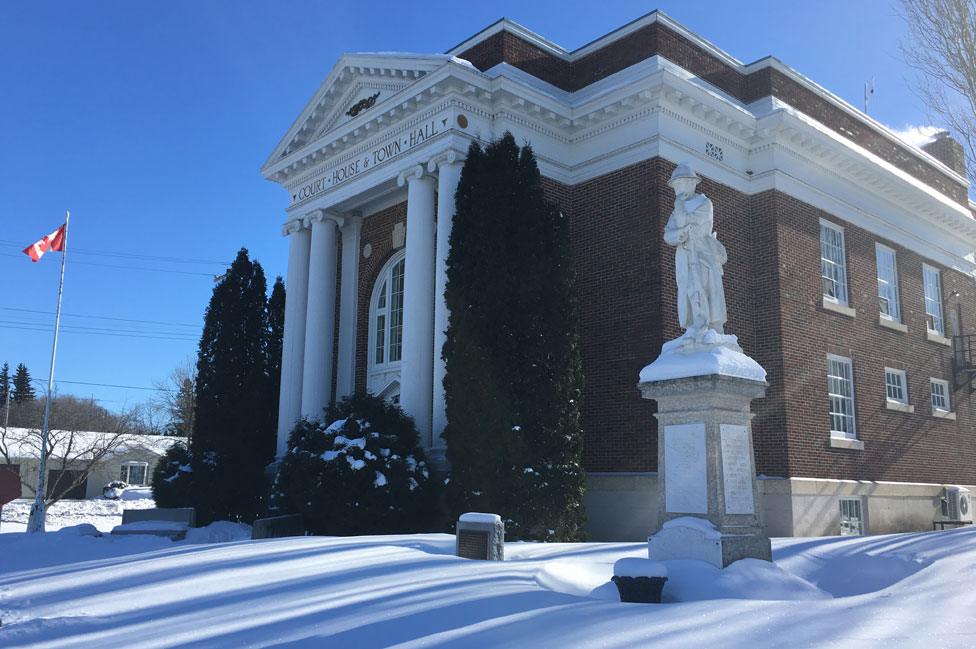
The town has warned it cannot take an increase in refugee arrivals
Between April 2016 and 31 December 2016, 430 asylum claimants had been intercepted after crossing into Canada near the Emerson border.
It is not immediately clear what is driving the spike of mostly African refugee claimants, many travelling from Minneapolis up the I-29 Interstate before walking through fields into Canada.
Still, Rita Chahal, executive director with the Manitoba Interfaith Immigration Council, said "people are coming, people are saying they are scared" when asked about the political climate in the US under President Donald Trump.
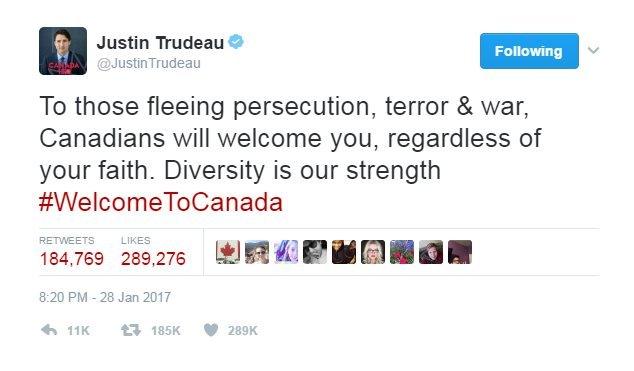
Manitoba MP Ted Falk said on Thursday that more needs to be done to secure the border.
"Once they're on our soil they are our responsibility," he said.
He said he has heard from constituents asking him to push the federal government to do more to enforce the border's integrity.
"I know the folks in my riding, someone shows up at their door cold and hungry they're going to to get looked after," he told the BBC.
"But we certainly don't want there to be a negative incident that occurs as a result of that."
The federal government is also under pressure to suspend the Safe Third Country Agreement, under which refugee claimants are required to request protection in the first safe country they arrive in.
It is a policy meant to better manage refugee claims and to avoid so-called "asylum shopping" between countries.
But it is also among the reasons the asylum seekers are avoiding trying to come to Canada at official ports of entry.
So far, the federal government is standing behind the agreement, which came into effect in 2004.
- Published29 January 2017
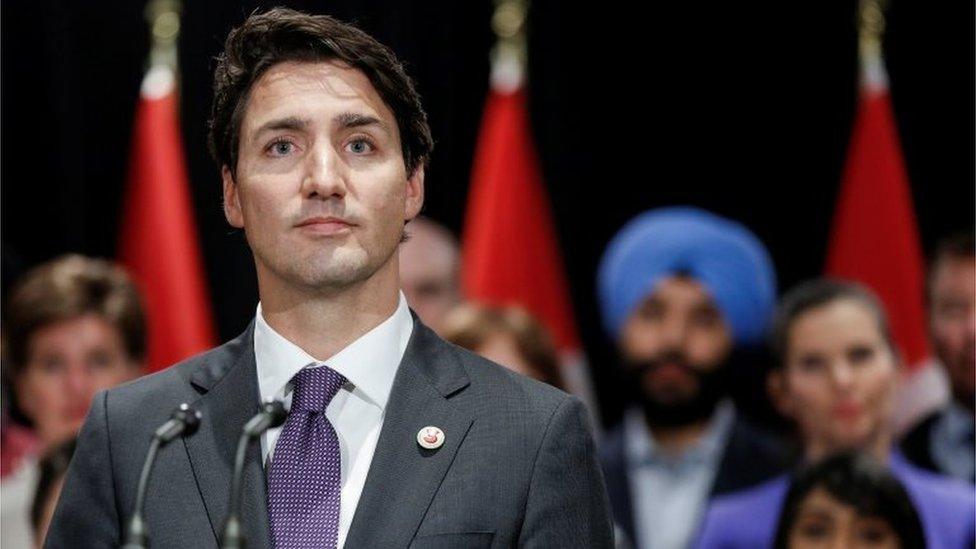
- Published4 March 2016
